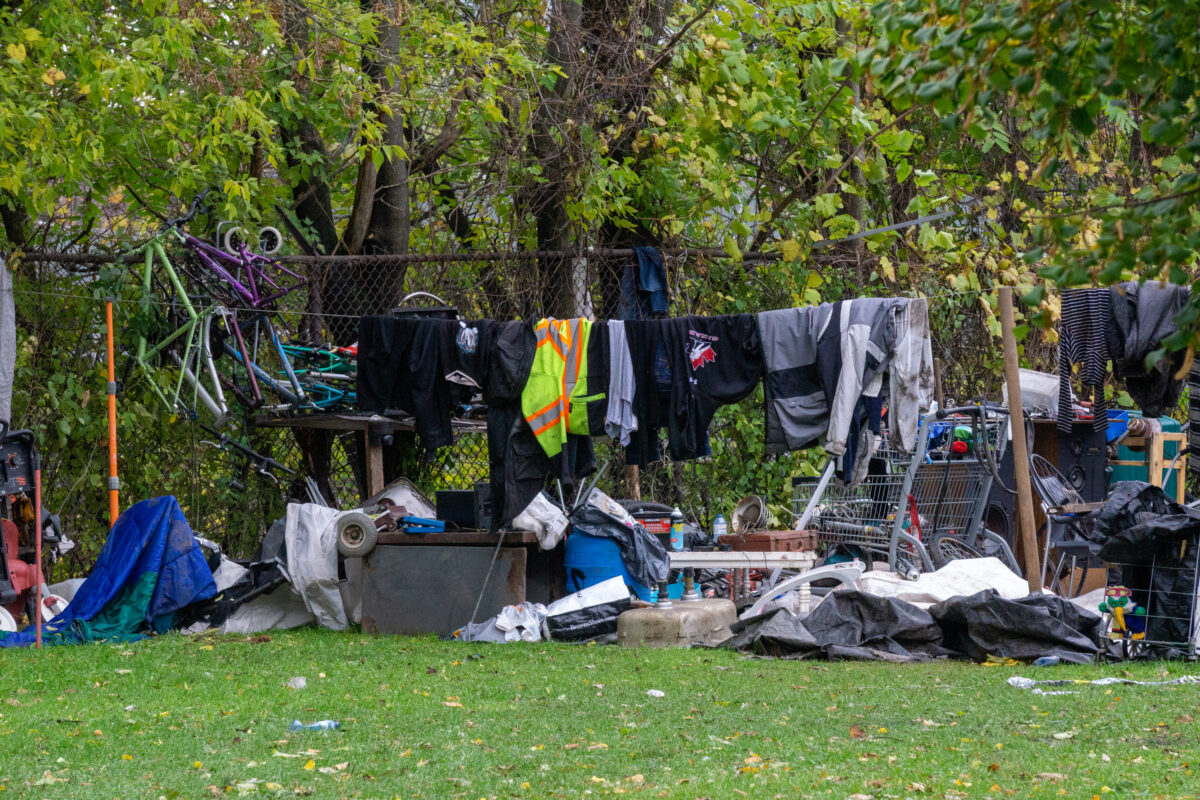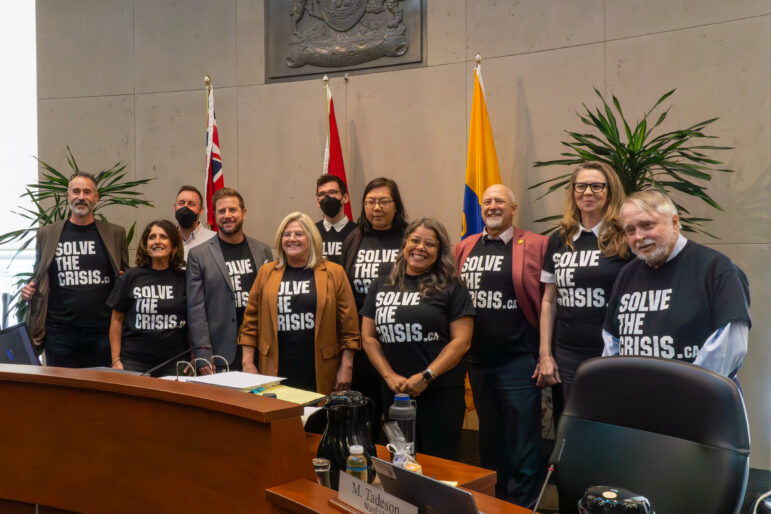Encampments and Homelessness: Hamilton May Succeed in Court
Hamilton is defending against a Charter challenge of the Parks Bylaw., and will be in Court on December 16, seeking to be the first Ontario municipality to successfully defend its bylaws.
Ontario’s Superior Court has mostly adopted the 2009 British Columbia Court of Appeal decision on encampments, repeatedly ruling there is a Charter right to life to encamp when no emergency shelter spaces are available.
City Council’s encampment policies have been strategic, and could enable the City to end encampments in 2025.
They have avoided any actions that could result in an emergency injunction against the City, while at the same time expanding its emergency shelter system.
In September, Council approved funding to create up to 272 new shelter spaces, 192 ‘traditional’ spaces and a 40-unit “temporary” tiny shelter community at the Barton/Tiffany lands
The millions of dollars being spent on new shelter beds bring Hamilton close to a ratio of available beds to unsheltered persons of 1:1.
The new “low barrier” tiny shelters are crucial to this legal strategy.
This enables Hamilton to go before the Superior Court and show that the City provides not only traditional spaces but also spaces for couples and those restricted from emergency shelters.
In The Regional Municipality of Waterloo v. Persons Unknown and to be Ascertained, 2023 ONSC 670, Justice Michael J. Valente added to the framework there can be a Charter Right to encamp if “available spaces are impractical.”
“If the available spaces are impractical for homeless individuals, either because the shelters do not accommodate couples, are unable to provide required services, impose rules that cannot be followed due to addictions, or cannot accommodate mental or physical disability, they are not low barrier and accessible to the individuals they are meant to serve,”
[The Waterloo decision did not grant any new Charter right to encamp in parks – the Waterloo property in question is vacant public land. Justice Valente did not need to consider other uses.]
At the same time that Council approved the new spending and spaces, they created a 1-kilometre exclusion zone around Barton/Tiffany where encampments will no longer be permitted.
The following month, in October, Council voted to prohibit encampments at parks and open outdoor spaces near the new emergency shelter spaces in the western portion of Ward 3.
Lack of Enforcement of Encampment Protocol, and Impacts on Broader Community
The Charter’s Section 7 Right to Life means people can encamp. It does not mean they can commit crimes, nor does it give anyone the right to operate ‘bicycle chop shops.’
The City turns a seemingly blind eye to flagrant violations of its encampment protocol.
Open ‘chop shops’ are dismantled only when public pressure reaches a boiling point.
Call it what you will, “compassion fatigue” has become the most often-used phrase at Council meetings, Crime and disorder are why public sentiment has shifted so strongly against the encampment protocol.
Big City Mayors React to Public Pressure: Call for Non-Voluntary Measures, Launch Solve The Crisis
In September, Ontario’s Big City Mayors (OBCM) launched a public campaign SolveTheCrisis.ca, to pressure the Ontario Conservative government to implement policy and funding to end encampments in Ontario.
Mayors began calling for the Conservatives to fund mandatory non-voluntary treatment and support for those with mental health and addiction issues, to enforce laws banning public use of illicit drugs, and to change the Trespass to Property Act to “assist communities in addressing aggressive or repetitive trespass.”
The campaign began gaining traction – and pressure was building on the Premier to respond.
The Notwithstanding Clause: A Masterstroke of Distraction, Overshadowing Solve The Crisis
In a masterstroke of distraction, Premier Doug Ford suggested invoking the Charter of Rights and Freedom’s notwithstanding clause — but only if Ontario mayors asked him to.
In response, 12 Ontario mayors (Barrie, Brampton, Brantford, Cambridge, Chatham-Kent, Clarington, Oakville, Oshawa, Pickering, St. Catharines, Sudbury and Windsor) issued a joint letter asking for the notwithstanding clause.
Hamilton City Council voted 6-9 against asking for the Notwithstanding clause,
The notwithstanding clause will not change the underlying issues.
Instead, Premier Ford can point back at municipalities and say he gave them what they wanted – the power to ban encampments, and that they need to use that power – without providing the needed financial resources to solve the crisis.
There will still be a housing shortage. There will still be a shortage of beds: be they shelter spaces, treatment beds, or jail bunks – Ontario needs to build everything.
Ontario’s jails are already over-capacity. Repeat offenders receive ‘bail, not jail’ because there are no bunks.
We know that drugs circulate in jails. The steady entry of short-stay prisoners enables drugs to keep flowing into jails.
Treatment beds, what treatment beds? Waitlists are months long.
Hamilton’s Plan May Work
On December 16, the City can stand in front of the Superior Court, show the Judge they’ve opened hundreds of new shelter beds, are on the verge of opening “low-barrier” spaces, and can ask that tents only be permitted overnight in limited circumstances.
Following the framework set up in British Columbia court decisions, B.C. municipalities that are closer to the 1:1 shelter beds to unsheltered persons ratio only permit overnight camping in designated sites. (See examples in Victoria and Kelowna.)
But Only if Council Does Not Break Apart First
At the midpoint of this Council term, the toll of enduring two years of heavy criticism from all sides on the encampment issue is showing.
Council is getting closer to being able to show tangible results. It may save its Parks bylaw in court, the SolveTheCrisis campaign was gaining traction, the new shelter beds will come ‘online’ in the coming weeks.
Will they continue the cycle so common to past Hamilton City Councils? Defeat themselves by devolving into bitter infighting and indecisiveness?
Craig Burley, a lawyer who is an organizer on Hamilton’s political left, encapsulated the challenge well, ending his recent delegation to City Council, by saying:
“Good luck. This is not easy.”
This was first published in TPR's Email Edition Email Edition Date: November 25, 2024 Link to this Newsletter Edition Subscribe to the Newsletter here.


